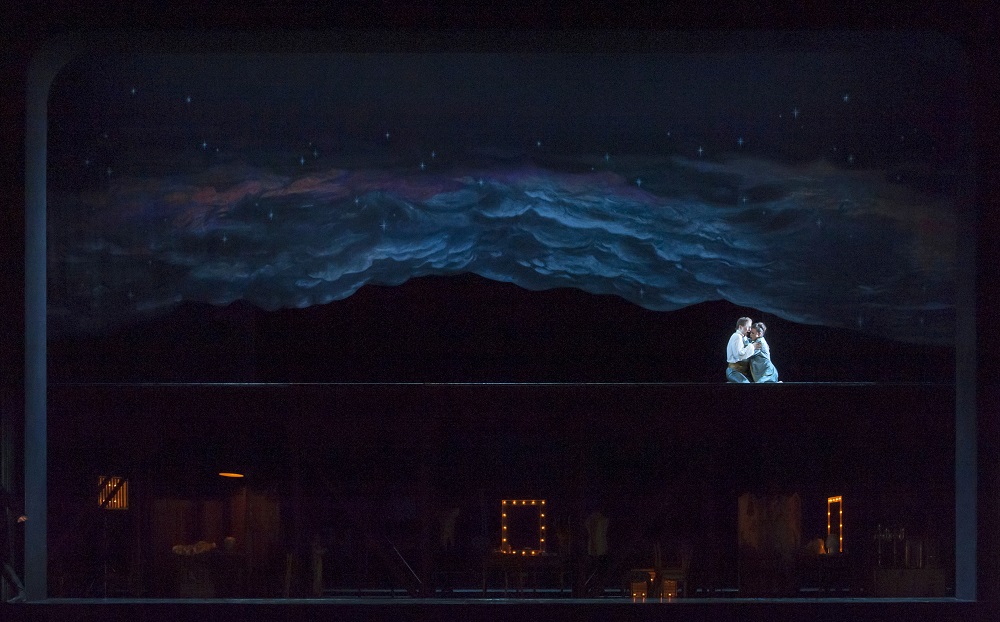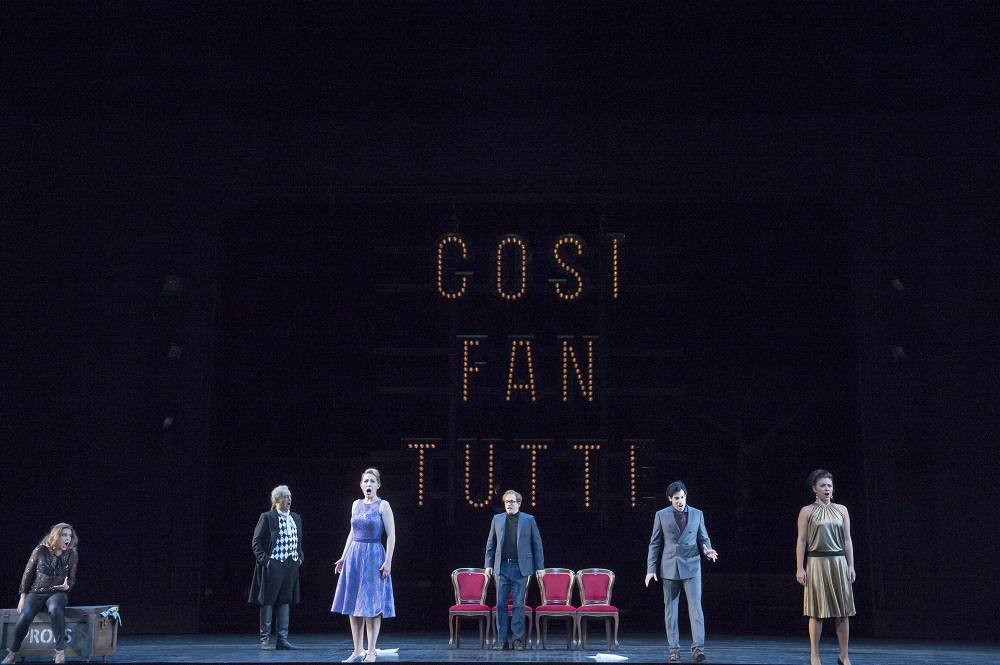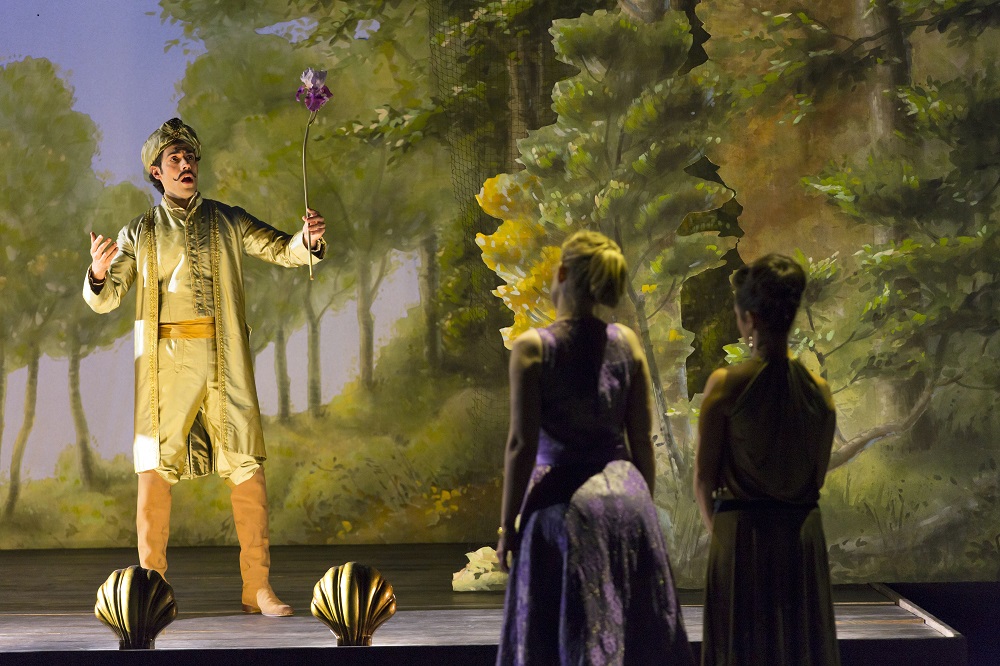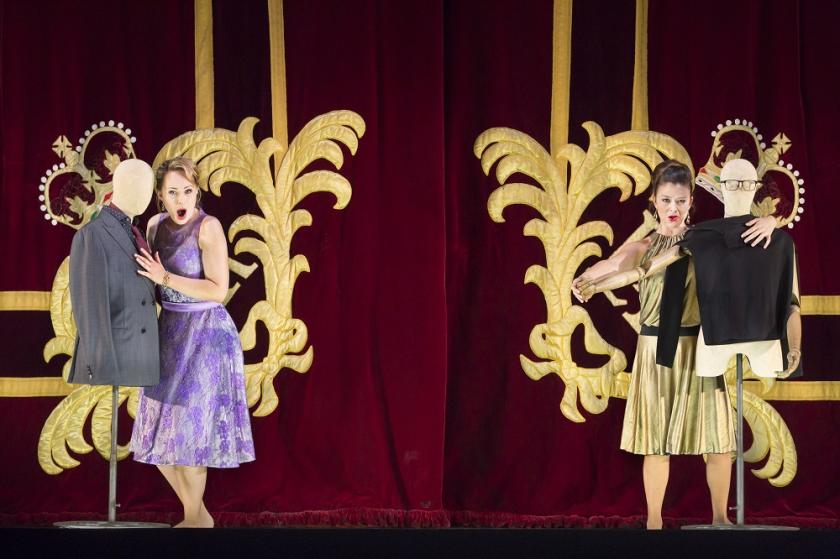Prospects hadn't seemed that great for this new Covent Garden Così. Could Semyon Bychkov, powerful earth-and-fire conductor of Richard Strauss's darker operas, possibly find the right proportions of air and water in Mozart? Would German director Jan Philipp Gloger prove better than his Bayreuth reputation? As it happened, the sextet of half-unknown principals never sang less than respectably, and the production had some good ideas, though mostly linked to the look of expensive sets rather than to focused work on the psychology of confused lovers. It was Bychkov who nearly sank the evening.
Even average Mozart conducting usually powers the drama well enough. When you hear an interpreter who really joins the dots and makes long acts seem like quarters of an hour, like Jonathan Cohen in Glyndebourne on Tour's Figaro and Mark Wigglesworth in ENO's revival of The Magic Flute, you understand how high the level can go. And when you hear someone like Bychkov sucking the human vitality out of Mozart's compassionate score, taking so many numbers slowly, in a style we thought had gone out with Klemperer and Colin Davis, and flaccidly, in a way that those two idiosyncratic masters never did, you realise how everything can fall at those kind of hurdles.
Red lights flashed as soon as the Overture signposts the music which in the opera proper arch manipulator Don Alfonso uses to get his two protégés to repeat after him "Co-sì-fan-tu-tte" ("All women are like that"). If it were sung at such a speed we'd hardly make sense of it. It is also not good to have such pronounced drum-roll close to a mere prelude of an opening scene between the three men.

Hardest pressed were the singers responsible for the two lovers who feel most deeply, and who really seem to be made for each other, Corinne Winters as Fiordiligi and Daniel Behle as Ferrando. Ferrando's lovely aria "Un'aura amorosa" is a sweet lovesong at a point in the action when nothing has yet gone deeper, so to take its Andante cantabile as Largo is to overegg the situation and force the singer to unnaturally elongated phrases, necessitating some very quiet singing; Behle pulled it off, but the number still didn't make musical or dramatic sense. The same went for Fiordiligi's more profound "Per pietà", etiolated to the point of torpor despite Winters’ ringing top notes and ornamentation (the chest range tends to come and go). No surprise, either, that their climactic duet (pictured above) went for little.
Never really witty, Gloger's main contributions to the actual dynamics of the foursome who change partners and change back again - or do they? - are to make each Act Two duet in which the men in disguise test each other's fiancees for real. The girls seem to take on each other's men in their duet with two dummies (pictured up top). Dorabella realises it's Fiordiligi's man wooing her when she takes off his “Albanian” headgear, and in both cases discarded moustaches are the final seal of recognition.

That begs more questions than it answers: would Dorabella so quickly betray her beloved sister with eyes wide open? And how to resolve the muddle in the Act Two finale when everyone actually knows the truth? The issue is fudged in a party scene, looking more like the Act 1 finale of Don Giovanni, where different sexual partners prove that "all" (tutti), not just women (tutte), “do it”. Better is the surprisingly light touch over who finally pairs off with whom (pictured above): at least Gloger avoids the fashionable unremitting bleakness so at odds with Mozart’s sparkling final ensemble.
The mechanics are those of stagecraft, manipulated throughout by Don Alfonso (Johannes Martin Kränzle, never as remotely funny or encouraged to give as fully realised a character as his Glyndebourne Beckmesser). A curtain-call in 18th century costume during the Overture cues a steady removal of layers which take us somewhat surreally to a train station for the men's departure to "war" and a bar full of lounge lizards, loosely disguised Guglielmo and Ferrando included, who look as if they might launch into a Bob Fosse number but do nothing more interesting than fall like ninepins when prodded by a soubrettish Despina (Sabina Puértolas, hardly a departure from the usual stereotype).

Ben Bauer's set designs, Karin Jud’s costumes and Bernd Purkrabek's lighting do a lovely job of an 18th century stage with bosky painted flats to launch the Act Two seductions (Alessio Arduini, Angela Brower and Winters pictured above), though the climactic duet on top of a hydraulic dressing-room scene isn’t easy to make out, at least from where I was sitting.
All this is effective - and drips pound signs (or euros) - but the interpersonal dialogues, what Germans call the Personenregie, lose out to the bigger, looser picture. Too much of the action, especially the ensembles and the Act One finale for all its Garden of Eden novelty, plays out like your average stock, under-directed Così. Angel Brower's Dorabella and the Guglielmo of Alessio Arduini, a young baritone with a slightly worrying vibrato beyond his years that doesn’t blend well with the tenor, are sexy and youthful, but don't get the chance to project strong personalities.
Bychkov again is partly to blame for not animating their lighter numbers, and there's a strong chance that the whole show, which the Royal Opera can't afford to jettison after a single run, would work a lot better under the baton, say, of Antonio Pappano, who has given us a superb Royal Opera Figaro from the keyboard. But while Bychkov, so admirable in different repertoire, drags, so will these performances. Interesting to see what difference Paul Wynne Griffiths, taking over on 19 October, might make. In the meantime, avoid if you can and wait for a revival.















Add comment